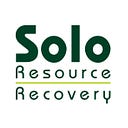The Circular Economy: Transforming Waste Management Practices
In recent times, the concept of the circular economy has emerged as a progressive concept that is transforming traditional waste management practices. As environmental concerns escalate globally, industries and communities are increasingly turning their attention to sustainable solutions that not only reduce environmental impact but also drive economic growth. This shift in thinking is also redefining the role of a waste management company such as Solo, and the services that we provide, with a growing emphasis on a circular approach that prioritizes resource efficiency and environmental stewardship.
The Circular Economy Defined
The idea of a circular economy represents a change from the straight-line “take, make, dispose” model that has traditionally dominated economic systems. Instead, this new approach encourages a closed-loop system where resources are continuously reused, recycled, and repurposed. Waste management, within this context, becomes an integral part of a broader strategy aimed at minimizing the environmental footprint while maximizing the value derived from materials.
For a more in-depth look at what constitutes a circular economy please check out our guide here.
Closing the Loop: A Comprehensive Approach
Circular economy principles demand a holistic approach to waste management services. It’s not just about collecting and disposing of waste; it’s about designing systems that prioritize reusability and recyclability from the start. Businesses are increasingly collaborating with product designers and manufacturers to create products that are easier to recycle and have a lower environmental impact. This collaboration across the supply chain ensures that materials retain their value and usefulness throughout their lifecycle.
Community Engagement and Education
One important aspect of the circular economy lies within community engagement and education. Solo offers community programs that raise awareness about the importance of waste reduction, recycling, and responsible consumption. By fostering a sense of environmental responsibility within communities, we are contributing to the creation of a culture where individuals understand the significance of their actions in the broader context of sustainability.
Embracing Technological Advancements
And the integration of advanced technologies into the Waste Management Business is another key component of this transformative journey. Solo is investing in state-of-the-art collection and disposal technologies, and in the future tools such as artificial intelligence and machine learning might enhance the efficiency of our waste collection, separation, and recovery. These technological advancements will not only streamline our operations but also contribute to higher rates of material recycling.
The Economic Benefits of Circular Economy Practices
Beyond the environmental and community advantages, a circular economy also brings significant economic benefits. By adopting circular practices, businesses can contribute to job creation in the recycling and repurposing sectors. Moreover, the recycling industry itself becomes a source of raw materials, reducing dependency on finite resources and contributing to the development of a more resilient and sustainable economy.
Exploring Additional Aspects of Circular Economy Practices
In addition to community engagement, technological advancements, and economic benefits, exploring the role that governments can play in supporting the circular economy is worth examining. Many countries, including Australia, are implementing regulatory frameworks that incentivize businesses to adopt sustainable practices, and Solo is aligning our strategies with these policies, further promoting circularity.
Moreover, extended producer responsibility (EPR) is gaining prominence. This approach holds producers responsible for the entire lifecycle of their products, encouraging them to design for durability and recyclability. Stakeholders such as businesses, in collaboration with policymakers, can be instrumental in shaping and implementing EPR initiatives, creating a more sustainable and accountable production ecosystem to great benefit.
Solo: Playing Our Part
In Australia, Solo is at the forefront of circular economy adoption, through our implementation of cutting-edge technologies in our collection and sorting processes, which help achieve higher rates of material recovery.
And our offerings have evolved beyond waste collection and disposal services, to becoming a key promoter in the sustainable management of resources, with a focus on adopting innovative technologies and practices that facilitate the recovery and recycling of materials and transforming waste into valuable resources.
We also encourage local manufacturers to promote the use of recycled materials in the production of new goods, once again closing the circular loop within the community.
The Circular Economy: Transformational
The circular economy represents a shift in waste management practices, emphasizing sustainability, resource efficiency, and environmental responsibility. Solo is embracing this, through community engagement, technological advances, and promoting economic collaboration to create a closed-loop system that benefits both the environment and the economy.
As Australian businesses continue to adopt the circular economy concept, Solo looks forward to playing its role in providing a more sustainable and resilient future for many generations to come.
To learn more about how your business can contribute to this change, please message us through our contact page, or call us at 1300 GO SOLO (1300 46 76 56).
